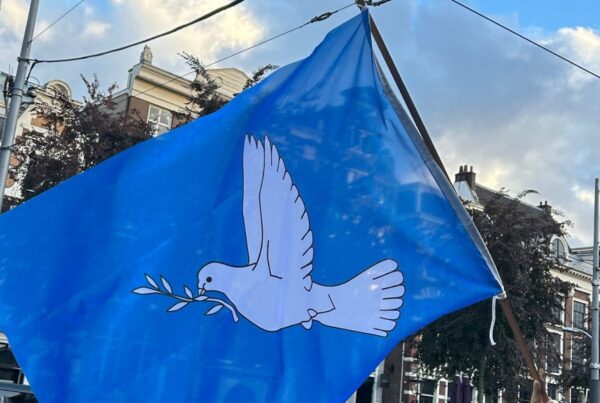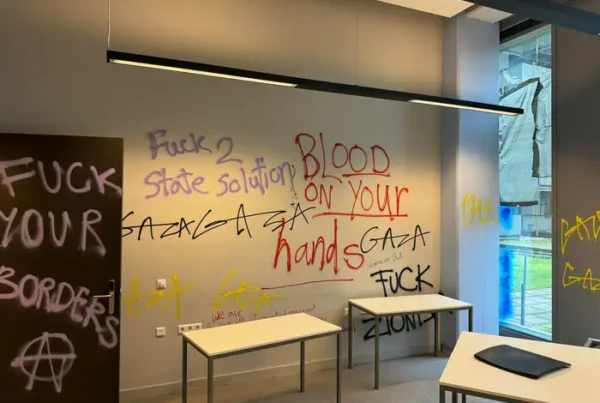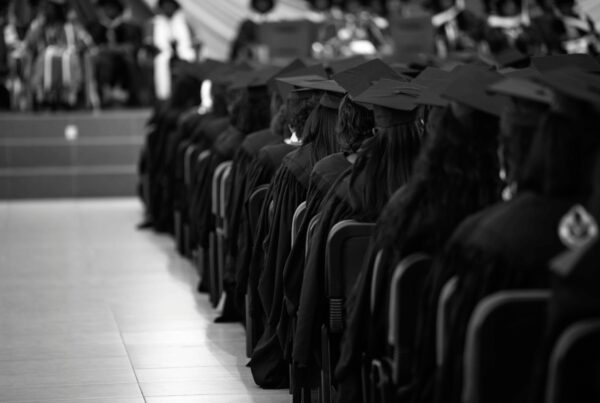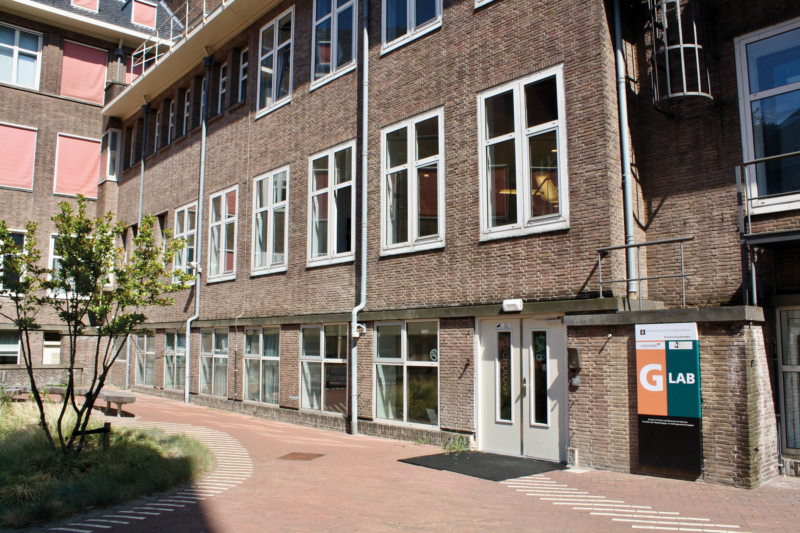
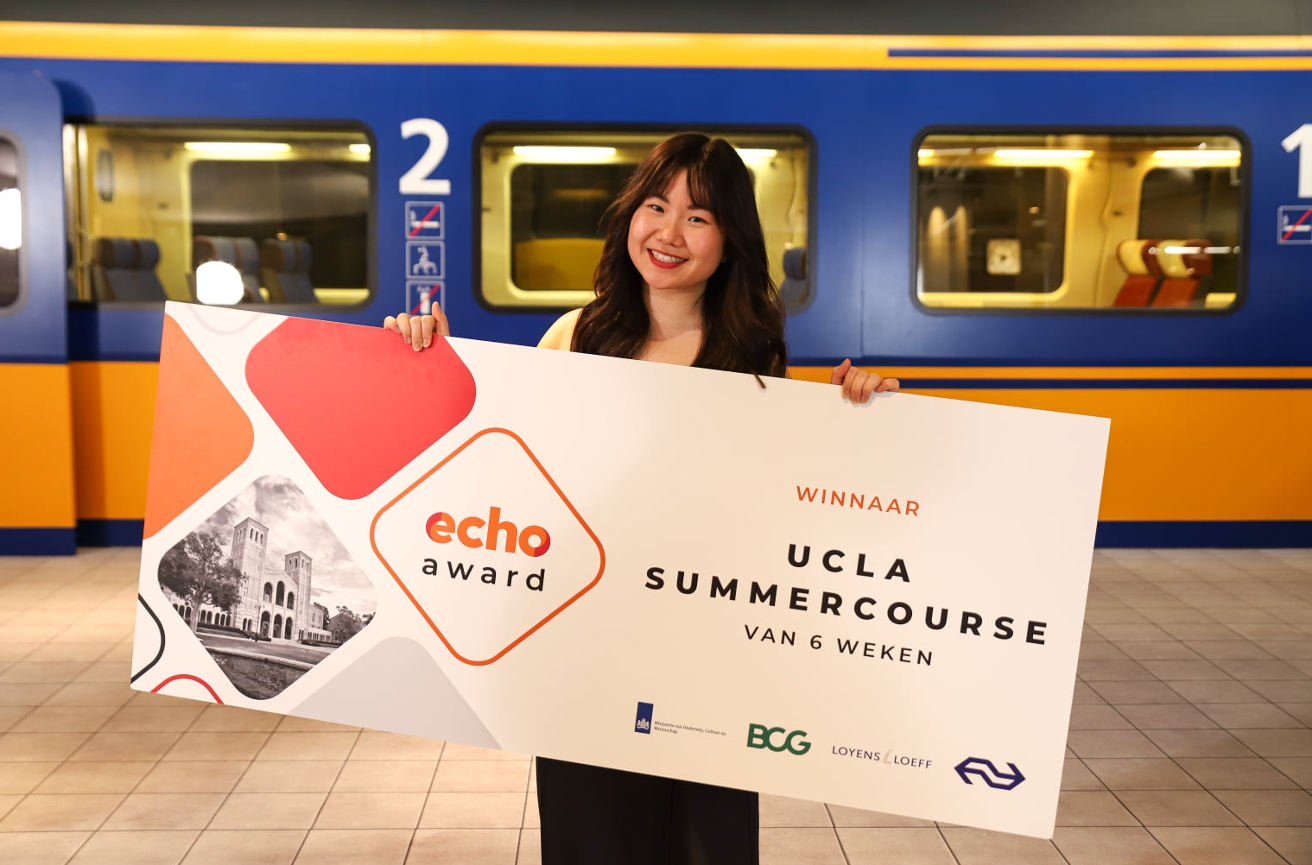
Rosie Zheng is a truly remarkable human being. Having finished her bachelor in Psychology and then Artificial Intelligence at the UvA (during which she wrote for Spiegeloog shortly), she has currently started her master’s degree in AI and cognitive neuroscience in Nijmegen. In addition to this, Rosie has been active in several organisations helping (to raise awareness about) women in STEM, or people facing Asian-oriented racism. Having Chinese roots, Rosie won the 2021 ECHO Award, a Dutch prize dedicated to excellent students with non-western backgrounds. This interview is about Rosie’s inspiring activism.
Rosie, you’ve been active in organisations supporting gender equality such as We are STEM that pays attention to women in STEM fields, or The Centre of Expertise on Gender Diversity in Science. You’ve been dedicating some of your time to the anti-racism platform Asian Raisins. Can you tell us how it all started?
Rosie: ‘First I started with We Are STEM. I started in May 2020, when the lockdown happened. Basically, a friend and I went to a borrel, and a female teacher approached us and said that she’s working in an organisation Women in the Faculty of Science. We remarked that it would be nice to have something like this on our own, as students, since we realised that problems with acknowledging women in science don’t start during PhD, but much earlier. So my friend from computer science and I decided to promote our initiative in our programs, and ended up setting up a whole organisation, together with other girls from medical sciences, medicine and computer science. We named ourselves Women in the Faculty of Science – student chapter, which then became Women in STEM. I got involved in the Centre of Expertise on Gender Diversity in Science by first mentoring during a summer camp. I helped girls from primary schools with their programming exercises there. And then I got a job there.
Things were also personal with Asian Raisins – because I was born and raised in the Netherlands, I experienced quite a lot of racism when I was a child and as a teenager. Then I saw an Asian woman – Sjoejeng – on Instagram about how she experienced racism. She seemed so brave and strong, finally a real role model. Xu then held an event where she connected people from East Asia, and I attended and felt so understood! I got to know that they have vacancies at Asian Raisins, so I applied without hesitation, and got a position at the Public Affairs Department.’
What do you do in Asian Raisins?
Rosie: ‘We do everything that promotes anti-racism. We handle cases related to anti-Asian discrimination, and we received around 230 such cases in the last year alone. For example, we have people calling us because someone used racial slurs, or because packaging on food is racist. In other words, anyone can call us, whether it is an individual or a company making a complaint, against an individual or another company. We then try to resolve the dispute by showing our arguments to the party who acted in a racist manner, and we strive to get them to either apologise or retract their actions, such as re-make the racist food packaging. If neither happens, we still publish the case and aggressor’s unresponsiveness on our website. And sometimes we just provide a listening ear.’
Winning the ECHO Award means being able to attend summer courses at UCLA. What courses are you planning to take?
Rosie: ‘That’s hard to say, since the summer school takes only six weeks, and I’m interested in so many subjects! I’d love to take courses on leadership and public speaking, to help spread my message further in my efforts such as with Asian Raisins. I’m also very curious about the US ‘take on artificial intelligence, as they’re very developed in this field, compared to the rest of the world.’
Could you tell our readers more about how they can get involved in one of the organisations that we talked about?
Rosie: ‘Yes, (not only) students can definitely get involved and are welcome either We are STEM, The Centre of Expertise on Gender Diversity in Science, or Asian Raisins! You can see the websites and social media links below. See you at one of our events!’
If you are interested to look up some of the organizations in which Rosie is active, see below:
We are STEM
The Centre of Expertise on Gender Diversity in Science
Asian Raisins

Rosie Zheng is a truly remarkable human being. Having finished her bachelor in Psychology and then Artificial Intelligence at the UvA (during which she wrote for Spiegeloog shortly), she has currently started her master’s degree in AI and cognitive neuroscience in Nijmegen. In addition to this, Rosie has been active in several organisations helping (to raise awareness about) women in STEM, or people facing Asian-oriented racism. Having Chinese roots, Rosie won the 2021 ECHO Award, a Dutch prize dedicated to excellent students with non-western backgrounds. This interview is about Rosie’s inspiring activism.
Rosie, you’ve been active in organisations supporting gender equality such as We are STEM that pays attention to women in STEM fields, or The Centre of Expertise on Gender Diversity in Science. You’ve been dedicating some of your time to the anti-racism platform Asian Raisins. Can you tell us how it all started?
Rosie: ‘First I started with We Are STEM. I started in May 2020, when the lockdown happened. Basically, a friend and I went to a borrel, and a female teacher approached us and said that she’s working in an organisation Women in the Faculty of Science. We remarked that it would be nice to have something like this on our own, as students, since we realised that problems with acknowledging women in science don’t start during PhD, but much earlier. So my friend from computer science and I decided to promote our initiative in our programs, and ended up setting up a whole organisation, together with other girls from medical sciences, medicine and computer science. We named ourselves Women in the Faculty of Science – student chapter, which then became Women in STEM. I got involved in the Centre of Expertise on Gender Diversity in Science by first mentoring during a summer camp. I helped girls from primary schools with their programming exercises there. And then I got a job there.
Things were also personal with Asian Raisins – because I was born and raised in the Netherlands, I experienced quite a lot of racism when I was a child and as a teenager. Then I saw an Asian woman – Sjoejeng – on Instagram about how she experienced racism. She seemed so brave and strong, finally a real role model. Xu then held an event where she connected people from East Asia, and I attended and felt so understood! I got to know that they have vacancies at Asian Raisins, so I applied without hesitation, and got a position at the Public Affairs Department.’
What do you do in Asian Raisins?
Rosie: ‘We do everything that promotes anti-racism. We handle cases related to anti-Asian discrimination, and we received around 230 such cases in the last year alone. For example, we have people calling us because someone used racial slurs, or because packaging on food is racist. In other words, anyone can call us, whether it is an individual or a company making a complaint, against an individual or another company. We then try to resolve the dispute by showing our arguments to the party who acted in a racist manner, and we strive to get them to either apologise or retract their actions, such as re-make the racist food packaging. If neither happens, we still publish the case and aggressor’s unresponsiveness on our website. And sometimes we just provide a listening ear.’
Winning the ECHO Award means being able to attend summer courses at UCLA. What courses are you planning to take?
Rosie: ‘That’s hard to say, since the summer school takes only six weeks, and I’m interested in so many subjects! I’d love to take courses on leadership and public speaking, to help spread my message further in my efforts such as with Asian Raisins. I’m also very curious about the US ‘take on artificial intelligence, as they’re very developed in this field, compared to the rest of the world.’
Could you tell our readers more about how they can get involved in one of the organisations that we talked about?
Rosie: ‘Yes, (not only) students can definitely get involved and are welcome either We are STEM, The Centre of Expertise on Gender Diversity in Science, or Asian Raisins! You can see the websites and social media links below. See you at one of our events!’
If you are interested to look up some of the organizations in which Rosie is active, see below:

